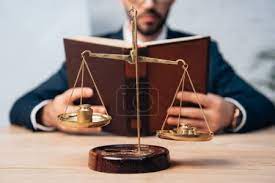Processing
Justice is an integral component of the legal system, serving as the foundation of society. In criminal cases where the question of a person's guilt is at stake, legal analysis plays a crucial role in forming an objective resolution. In this article, we will explore how legal analysis influences the process of criminal proceedings and why it is essential to consider it in all aspects.
1. What is Legal Analysis?
Legal analysis is the outcome of legal scrutiny, where professional lawyers examine issues related to a criminal case. It is based on the analysis of facts, evidence, legislation, and judicial practice.
2. The Role of Legal Analysis in Criminal Proceedings
Legal analysis is a necessary component of criminal proceedings and holds several vital roles:
Objectivity and Independence: Legal analysis must be based on the examination of facts and relevant legal norms rather than personal wishes or external influence. It helps ensure the impartiality of case consideration and reduces the risk of personal preferences or interests influencing the outcome.
Legal Competence: Legal analysis must be conducted by qualified lawyers who possess deep knowledge of legislation and procedural rules. This guarantees the accuracy and reliability of conclusions based on a clear interpretation of the law and judicial practice.
Evidential Basis: Legal analysis considers all available evidence, testimonies, and expert opinions, analyzing them in the context of legislation and judicial practice. This helps ascertain the extent to which these pieces of evidence confirm or refute suspicions regarding the suspect.
Assistance to the Court: Legal analysis serves as a crucial source of information for the court. It provides the court with a clear analysis of legal issues, helps make well-founded decisions, and explains complex legal aspects of the case to the parties involved and the public.
3. The Impact of Legal Analysis on Criminal Proceedings
Legal analysis significantly influences the course of criminal proceedings. Here are some aspects to consider:
Building the Evidential Basis: Legal analysis helps determine which evidence is relevant and sufficiently strong to establish the guilt or innocence of the suspect. It identifies gaps in the evidential basis and opportunities for further investigation.
Definition of Legal Qualification: Legal analysis examines the facts of the case and determines which specific crimes may be qualified. It assists the court in determining what offense has been committed and which legal norms need to be applied.
Evaluation of Evidential Basis: Legal analysis assesses the reliability and significance of evidence, identifying their strengths and weaknesses. This helps the court make well-founded decisions based on professional legal analysis.
Optimizing Judicial Proceedings: Legal analysis of the situation can influence the course of judicial proceedings; for instance, interested parties may use its arguments in their positions. It also helps the court focus on the essential issues of the case and avoid unnecessary delays.
Trust in the Judicial System: Legal analysis ensures transparency and objectivity in the judicial process. It instills public trust in the judicial system, as people see that decisions are based on legal arguments and impartial analysis.
Legal analysis is a key component of a fair criminal process. It forms the basis for the objective consideration of criminal cases, ensures legal competence and independence, facilitates accurate analysis of the evidential basis, and helps ensure justice in detail. The legal opinion of a lawyer significantly influences the court's decision and the determination of the legal qualification of the crime. It should be regarded as an important component of justice, contributing to trust in the judicial system and ensuring justice for all citizens.





























